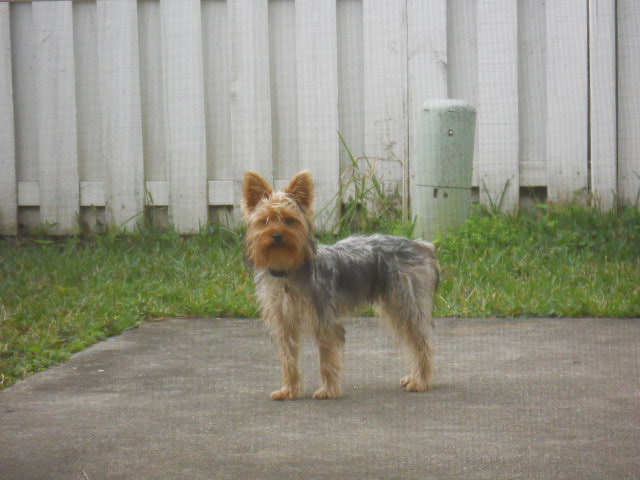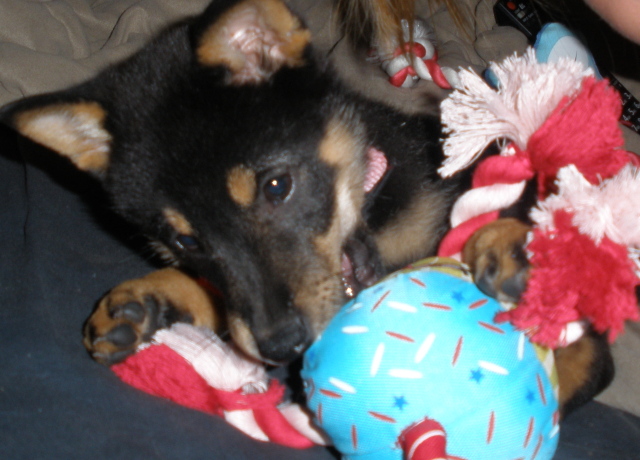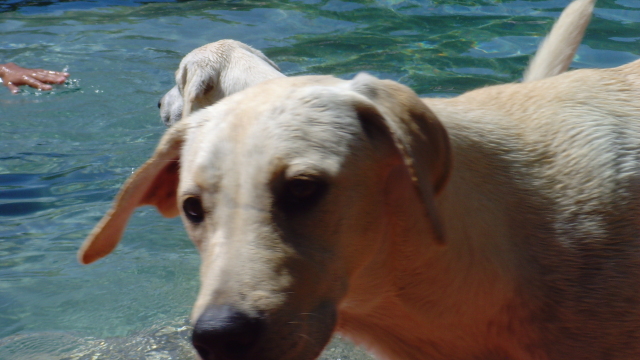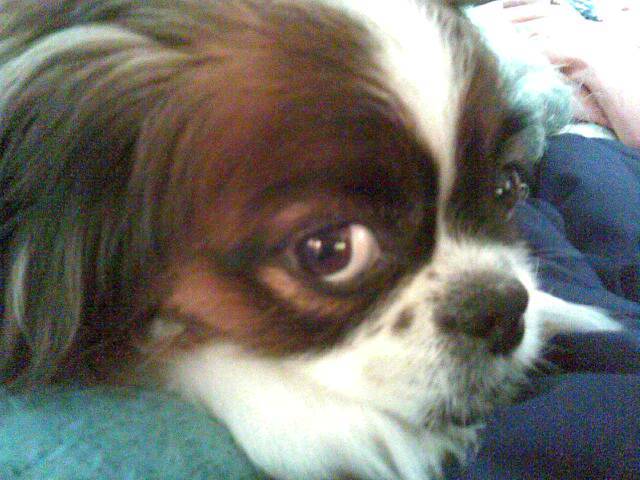QuestionI have a pup 7 months old who I have only had for approx 6 weeks. She is now house trained but have found on occasion that she has wet 3 beds in the house Not sure if she is bursting and we have not noticed but then why would she jump on a bed to do it Also she has chewed dining table, table cloth, newspapers, skirting board when she is left. During night she is fine - she sleeps away from us with our other dog and seems to be fine but when husband leaves for work in the morning this is when she is doing the damage. I am not up when he leaves for work. If she is left in house with other dog with human presence she does the same - but not at night. Im not sure why Can you advise please
AnswerDogs that have lost a primary caregiver (re-homed) develop separation anxiety. That's what your dog's behavior suggests. The trigger is your husband leaving the house, even though you are upstairs asleep (I presume she has no access to your bedroom and might not be aware that you are in the house). You've had this dog a very short time and she is not habituated to your household. It's not advisable to allow a recently acquired dog to have free run of the house when you aren't available to observe her, whether you have left the house or are in another area.
The motivation for any behavior a dog offers has to be considered. What does the dog gain by urinating on your bed (or any other family member's bed)? This is definitely marking behavior (unless there is an underlying physical cause such as a very full bladder OR a urinary tract infection, so veterinary visit is necessary to rule this out). Dogs mark to make a statement: "I am here". This does NOT mean the dog is claiming the bed as his/her own; rather, it is a way of leaving scent on top of that of the family member's so as to make it easier for that family member to "find" this location. It's NOT "dominant" behavior and it's not territorial. Anxiety of any sort can produce inappropriate urination and defecation.
Confine the dog to the kitchen or other safe, warm and well ventilated area when you are not at home or when you are in another place in the house. Make this space comfortable, "safe" and happy, NOT a place for "punishment" and certainly not social isolation. Prevent the dog from having access to the bedrooms as inappropriate urination can become habitual even after the original motivation has been removed. When she's left alone in this way, give her a very safe toy (such as a Buster cube which will dispense a portion of her food when she rolls it around) or a kong with a small bit of cream cheese or peanut butter stuffed inside it. Don't make a big deal out of her confinement, be casual. When you let her out upon your return, greet her warmly but briefly in a casual way. Do NOT react to anything she may have destroyed (such as paper). She won't understand the reason for your anger but she will associate your anger with your return and that will make her separation anxiety worse.
Dogs need calm, consistent and fair "leadership". Introduce positive reinforcement training so your dog(s) can offer behaviors you can reward; continue to reward appropriate outdoor elimination with praise (and a treat now and then); give this young dog a chance to learn to trust her new environment and people. Boosting her problem solving ability will help to make her more confident. Try Dr. George Gates' "A Dog in Hand: Teaching your Puppy To Think".

 agressive silky terrier
Question
Lucas 1 year old
Hi Jennifer:
I have a
agressive silky terrier
Question
Lucas 1 year old
Hi Jennifer:
I have a
 My Shiba Inu
Question
Lola
I bought a registered Shiba Inu puppy fro
My Shiba Inu
Question
Lola
I bought a registered Shiba Inu puppy fro
 Agressive 1 yr old mini goldendoodle
Question
our millie
My husband and I got our min
Agressive 1 yr old mini goldendoodle
Question
our millie
My husband and I got our min
 Psychological trauma
Question
Izzy
I recently took my 1 year old dog to a fr
Psychological trauma
Question
Izzy
I recently took my 1 year old dog to a fr
 Post bladder surgery potty training for INDOORS!
QuestionTiki
QUESTION: Dear Dr. Connor,
My 10 ye
Post bladder surgery potty training for INDOORS!
QuestionTiki
QUESTION: Dear Dr. Connor,
My 10 ye